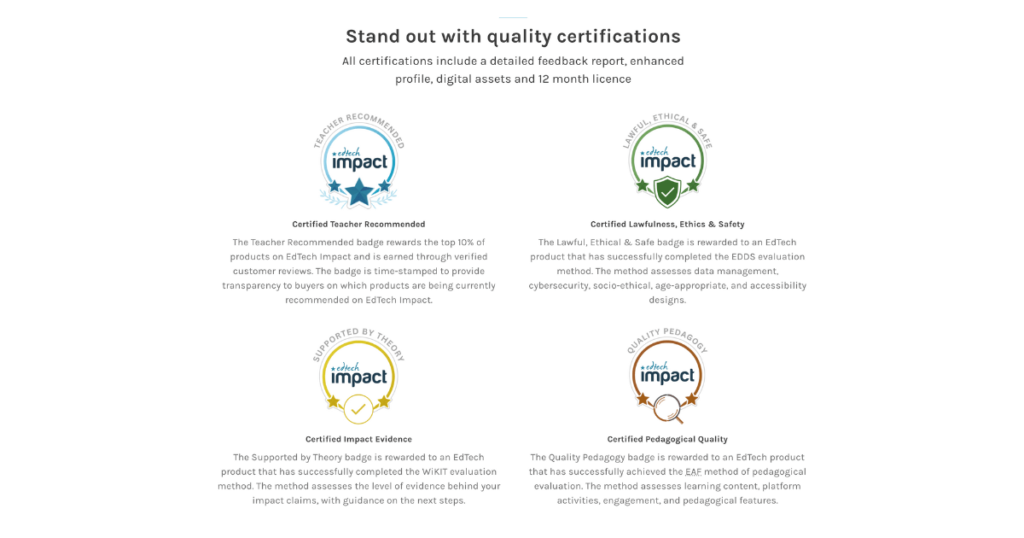If you're in the bustling world of selling to schools, you know that trust isn't just part of the game - it is the game.
Why? Because when it comes to the people running our schools, every decision, every purchase needs to be spot-on. They’re looking for partners they can rely on without a second guess.
So, how do you become that reliable partner?
It’s all about mastering the art of trust signals.
What are Trust Signals?
Think of trust signals as your marketing toolkit for building instant rapport.
They’re the proof points and subtle cues that say, “Hey, we’re the real deal” without you having to shout it from the rooftops.
They help your prospective school decision-makers feel comfy and confident in choosing your product or service over the sea of alternatives.
How Trust Signals make or break deals
When schools shop around for new resources, services, and solutions, they aren’t just buying a product; they’re buying peace of mind.
They want to know you’re not in it to send them an invoice once a year, but that you’re with them, as a partner, for the long haul.
Understanding where to improve trust de-risks the buying decision.
Here’s our top 10 trust signals that can turn skeptical teachers into happy customers:
1. First impressions matter
The quality of your website experience is a major trust signal.
Make sure yours counts with an easy-to-navigate, modern feeling, and mobile friendly site that is designed from your ideal customer’s perspective.
Our advice is simply to always think like a customer:
- When they land on your home page what will be their 2nd click, and will it be helpful?
- When you ask them to fill out a form is your data security promise clear?
- Does your website have a clear purpose, or does it crowd the plate with a 1000 confusing calls to action?
When (re)writing for your website consider flipping the product descriptions around so they start with the customer, not you:
Website copy that's all about you, NOT them:
"A targeted group coaching and development program aimed at enhancing the skills and confidence of CPD Leads within schools and trusts." ❌
Website copy that's all about them, NOT you:
"Enhance the skills and confidence of your CPD Leads with our targeted group coaching and development program." ✅
2. Show you know your customers’ world
Share insights, advice, and thought pieces that speak directly to the challenges your customers face.
For example, you could create an invite only Facebook or WhatsApp group to meet and respond to your prospects and customers.
Perhaps, if capacity is there, start a podcast to discuss issues effecting your audience.
Stop broadcasting company and product updates on your newsletter and socials (it’s awfully forgetful). Pick a niche topic that’s of interest or help to your ideal customer.
3. Is your self service support up to snuff?
People are less likely than ever to want to pick up the phone.
So give them as much online support as you can. An offer of a demo is OK, but it’s not the best trust signal.
Instead build a product 101 mini-site, a teacher-centric upsell toolkit, and monthly drop in virtual surgery. They’ll all help build trust.
4. Social proof
Nothing says “trustworthy” like rave reviews.
But make sure those testimonials and case studies contain real outcomes.
It doesn’t help if a customer says “I think they’re great!!”. It’s much more helpful if they say “I think they’re great because they helped us improve attendance by 20%”.

5. Certifications and endorsements
Got stamps of approval from educational bodies or industry leaders? Awards? High profile customers? Impressive numbers? Show them off!
You should favour marketing tactics that give you credibility e.g. 3rd party certifications or expert advocacy.
6. Plain English wins trust
Be clear about what you offer, the outcomes, and how you speak about your customer experience. If in doubt, clarity always increases confidence.
7. Never underestimate customer service
Do you have a chat bot with a human at the other end? It’s fine to have a bit of automation at the start, but nothing beats chatting to a real person.
How quickly to do you respond to form entries? If you can’t get back right away, set up an auto-response email to at least tell them you got their enquiry.
If a teacher DMs on Twitter/X you how do you manage it? Lots of people like to DM companies, so be prepared to reply in (almost) real time.
A teacher’s first interaction with you might be with your customer support team – and the trust can be earned or broken in that moment.
8. Outcomes and evidence
Do you partner with companies like Edtech Impact to collect impartial customer feedback?
Being open (and responsive) to honest criticism is a huge trust builder.

9. Stock and AI photography
We’re not big fans of stock photography at the agency (although it has its place).
Prospective customers will be more likely to trust a company that uses real images of real customers using your product in a real classroom. Invest in good photography and videography.

10. Website reliability
Broken links, slow pages, missing page titles, no ALT text and so on.
We’ve all experienced these little mistakes. And most of them are easy fixes.
Not only will these issues have a detrimental effect on SEO, they diminish trust.
Set up site scanning tools like Ahref’s Site Audit that alert you to website problems.
When marketing to schools, trust is your currency.
Spend it wisely by investing in strong trust signals across all your channels.
Remember, every interaction is a chance to build credibility. Make it count by being consistently awesome, helpful, and transparent.
Do this, and watch as schools come to see you as more than just another vendor, but as a partner they can trust year after year.












